How the media downplayed Trump’s major victory on the massive bond but played up his New York trial date
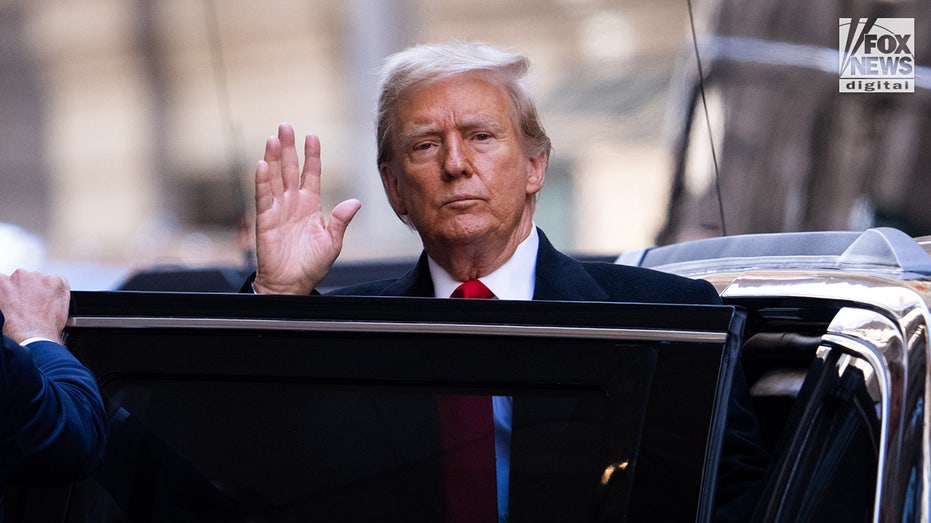
Donald Trump won a huge legal victory with hours to spare – but you wouldn’t know it from much of the coverage. A striking number of anchors and pundits, especially on MSNBC, reported Trump’s appeals court victory when it broke on Monday, but soon were describing it as a bad ruling and lamented the fact that once again he seemed to be getting away with something. They began the day in high spirits, because the deadline had arrived for New York’s attorney general to be able to freeze his bank accounts, seize his properties and perhaps sell off some of his iconic buildings. WHY MSNBC DOESN’T WANT RONNA MCDANIEL – OR DONALD TRUMP – ON ITS AIRWAVES The reason, of course, was that Trump was unable to post a $464-million bond that would have allowed him to pursue his appeal without forfeiting some of his real estate holdings. But when five appellate judges, seemingly out of the blue, slashed the bond requirement to $175 million – and gave him 10 days to come up with the money – the usual battalion of Trump-bashing former prosecutors, including Andrew Weissmann, who was lead prosecutor for Bob Mueller’s largely unsuccessful Trump investigation before becoming an MSNBC legal analyst. Weissmann pivoted to what he called an “ongoing schism” among Trump’s lawyers. What most of those covering the story didn’t say was that the ruling was a stinging rebuke to the trial judge, Arthur Engoron, and AG Letitia James. To demand that the former president come up with nearly half a billion dollars was punitive and wildly excessive, and the judge gave James almost everything she wanted. Although there’s no written opinion, it’s impossible to read the appellate decision any other way, given that the judges reduced the draconian penalty by well over half. What was Trump going to do, flee the country? He’s running for president! Now it’s true that this may only be a temporary reprieve. Trump was found liable for inflating the value of some of his buildings and golf courses, despite the fact that the banks that loaned him money did their own analysis and were fully repaid. At first James, the Democrat who campaigned on a platform of going after Trump, sought damages of $250 million – then boosted it to $370 million. Engoron rolled over and gave her almost everything she wanted, as he has throughout the litigation. So the Trump Organization could be badly wounded if he ultimately loses, and is barred from being an officer of any New York corporation for three years, as James demanded. WHY THE TRUMP BOND CRISIS LOOKS LIKE A CONCERTED EFFORT TO RUIN HIM But while it’s hard to predict what courts may do, isn’t it possible that an appeal court that found the half-billion bond demand absurdly high could also reduce the $370-million penalty that Engoron granted as equally excessive? The media coverage quickly gravitated to a second court ruling that went against Donald Trump. This one, however, was widely expected. Judge Juan Merchan ruled that the hush money case will begin on April 15, less than three weeks away. Trump’s lawyers had tried a Hail Mary, asking that the case be further delayed or tossed out entirely. Such motions rarely succeed, and the judge had already granted a delay from the planned mid-March start date. This case, brought by Manhattan D.A. Alvin Bragg, is the least important and most openly partisan of the four indictments against Trump. And yet it is virtually certain that the Stormy Daniels trial will be the only criminal case that reaches a verdict before the election. That verdict can be appealed, of course, but it’s hardly impossible that a Manhattan jury, in a borough largely opposed to Trump, could convict him. Then we would find out whether hypothetical polls about some independents and Republicans being less likely to vote for a convicted former president. Trump will try to convince his supporters that this is another case of weaponizing law enforcement against him – especially since Bragg seemed to drop the probe for a time and charged what usually would have been a misdemeanor to a felony. But the media were so thrilled to have an offsetting ruling that the Washington Post ran this headline: “Trump Reels from Competing Court Decisions as Trials Disrupt Campaign.” Reels? After a surprise victory on the bond question and a predictable setting of a New York trial date? It goes without saying that any politician not named Trump would be finished within a day or two if charged with paying off a porn star. But the media were convinced that every previous indictment would damage him and everyone now agrees they boosted him in the polls. At issue in the hearing was whether Bragg’s office gave Trump’s team enough time to review thousands of pages of documents obtained from federal prosecutors. But it turned out only 300 of those pages involved Michael Cohen, the former Trump fixer who served time and now will be the trial’s star witness. In the fall of 2016, Trump’s campaign worried that Stormy Daniels would go public with her account of having a one-time sexual encounter with him, which he has always denied. Cohen arranged for her to be paid $130,000 to buy her silence. Trump is charged with approving the reimbursements, though Cohen’s credibility is obviously subject to challenge. Judge Merchan scolded one of Trump’s lawyers, at one point asking how much experience he had as a prosecutor. He said the defense allegations on the documents were “unbelievably serious,” adding: SUBSCRIBE TO HOWIE’S MEDIA BUZZMETER PODCAST, A RIFF ON THE DAY’S HOTTEST STORIES “You are literally accusing the Manhattan D.A.’s office and the people assigned to this case of prosecutorial misconduct and trying to make me complicit in it.” The former president vowed to appeal, saying, “I don’t know how you can have a trial like this in the middle of an election, a presidential election.” But jury selection is almost certain to
Leadership shakeup in key security agencies: Sadanand Date new NIA DG; BPR&D and NDRF also get new chiefs

Date, a 1990-batch Indian Police Service (IPS) office of Maharashtra cadre, has been appointed as the new Director General of the NIA.
Who was Swami Smaranananda Maharaj, president of Ramakrishna Mission, who died at 95?
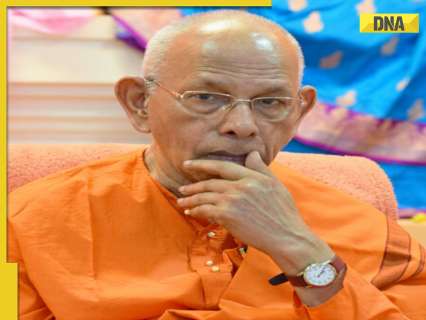
Swami Smaranananda Maharaj, died at 95 due to age-related ailments.
Montgomery County directs citizen board to review, and potentially remove, library books

The county north of Houston adopted the guidelines amid a growing number of book bans in school districts and a new state law that supporters claim protects children from inappropriate material.
‘Backs to the wall’: Myanmar military prepares to mark Armed Forces Day
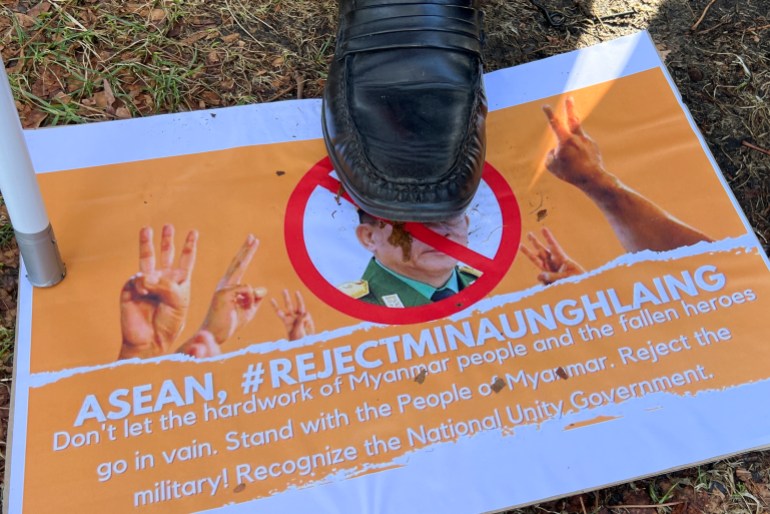
The Myanmar military will mark Armed Forces Day on Wednesday with its usual parade in the purpose-built capital of Naypyidaw. Thousands of armed troops from all three branches will march in formation, while tanks roll through the streets and fighter jets screech overhead. But the show of strength will do little to paper over the reality – Myanmar’s military is at its weakest point in decades. Perhaps not since 1949, when the Karen National Union captured the Insein neighbourhood, in the then-capital Yangon, has the military been so humiliated on the battlefield. Commander-in-Chief Senior General Min Aung Hlaing, who seized power in a 2021 coup, is expected to lead the festivities, despite presiding over the recent loss of huge swathes of territory and facing unprecedented calls for him to step down, even within pro-military circles. “He has become the most unpopular commander-in-chief among [the] rank and file in Tatmadaw history,” said Min Zaw Oo, the executive director at the think tank Myanmar Institute for Peace and Security, using the formal name for the Myanmar military. Min Aung Hlaing seized power after Aung San Suu Kyi led the National League for Democracy to a landslide election victory in 2020, with the military then killing hundreds of protesters who took to the streets calling for them to go. The bloody crackdowns inspired an armed revolt, both in the long-restive borderlands where ethnic minorities have fought for political autonomy for decades and in the previously peaceful heartland where the Bamar ethnic majority live. Anticoup protesters stamp on a picture of military leader Min Aung Hlaing [Johnson Lai/AP] The widespread armed resistance has left the military overstretched and undermanned; a situation exposed in late October when the Three Brotherhood Alliance launched a stunning offensive known as Operation 1027. The trio of ethnic armed groups seized large chunks of territory in northern Shan and southern Chin states as well as in Rakhine State, where fierce fighting continues to rage. “Operation 1027 and subsequent operations showed that the Myanmar military was much weaker than thought,” said Richard Horsey, a senior Myanmar adviser at the International Crisis Group. “A collapse of the military doesn’t appear imminent, however. The generals’ backs are to the wall, and they likely see no real alternative to fighting on,” he said, adding the same is true for Min Aung Hlaing on a personal level, who “appears determined to tough things out”. While the Brotherhood has kept some distance from the broader pro-democracy uprising, other armed groups launched their own offensives in the wake of Operation 1027, seemingly hoping to capitalise on the military’s vulnerability. The People’s Defence Force and Karenni Nationalities Defence Force, both formed after the coup, seized towns and territory in Sagaing Region and Kayah State respectively, with the KNDF now fighting on the streets of the state capital. The Kachin Independence Army – formed in 1961 and today closely aligned with the post-coup movement – supported the fighting in Sagaing and launched a major coordinated offensive of its own in Kachin State earlier this month. Min Zaw Oo said the military is “losing ground” in northern Shan, Rakhine and Kachin, where powerful ethnic armed groups are leading the charge. But it is a different story in Sagaing, where the military has managed to claw back some major towns lost to resistance groups formed after the coup. “The pro-democracy opposition is still weakly armed and fragmented,” Min Zaw Oo said, explaining that they are largely dependent on the more established ethnic armed groups. Horsey agrees. “The military’s most powerful foes are the larger ethnic armed groups and they are very unlikely to want to march on Naypyidaw as they have their own priority objectives closer to home,” he said. “Post-coup resistance forces would be motivated to take the fight to the capital, but they lack the necessary firepower, coordination and experience.” The spectacular fighting in northern Shan fizzled out after the Brotherhood signed a China-brokered ceasefire with the military, allowing the groups to consolidate control over their newly-claimed territories. But KNDF Chairman Khun Bedu said the ceasefire has also allowed the military to “consolidate their power and continue to maintain the central area”. He blamed Beijing’s continued support for propping up the military and the military’s more advanced technology. China and Russia have both provided arms to the military since the coup, including fighter jets. Khun Bedu said recently that the military has also been more frequently using drones rigged with explosives in kamikaze-style attacks or to drop bombs on resistance positions. Maintaining cohesion As a result of the recent defeats, Min Aung Hlaing has faced highly unusual public criticism from military officers and supporters. A major-general in the air force called him the “worst leader in the history of the military”, while ultranationalists called for him to step down during rallies in the aftermath of Operation 1027. But three years after overthrowing a hugely popular civilian government, presiding over unprecedented territorial losses, a calamitous economic collapse and seemingly unable to protect supporters from assassination, the bigger story may be how the military has managed to hold together this long. There have only been two unit-level defections – both ethnic militias that were loosely under military command but already operated with a high degree of autonomy. “Despite facing widespread opposition, the military has maintained its cohesion by projecting strength externally, a common strategy among military institutions worldwide,” said activist Thinzar Shunlei Yi, who works with People’s Goal, an organisation that encourages defections from the military. However, she said this perception of strength is being challenged by recent events. She said the military’s historic “indoctrination techniques are deeply rooted in nationalism and religious ideologies”, which are increasingly rejected by ethnic minorities and pro-democracy groups, leaving “soldiers and their families feeling disoriented amidst shifting societal paradigms”. “Defecting soldiers, particularly the younger generation, often cite disillusionment with the military’s actions rather than support for the revolution,” she added. A major offensive that began at the end of October last year reinvigorated forces
China’s Xi to meet foreign business leaders amid jitters over economy
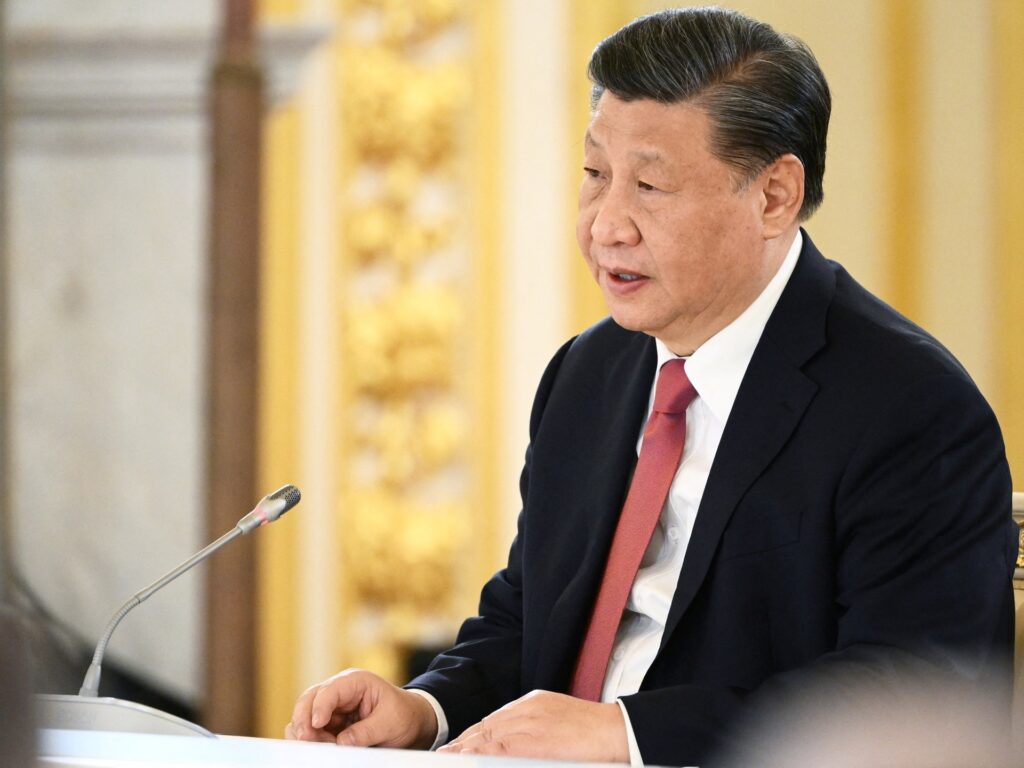
Taipei, Taiwan – Chinese President Xi Jinping is set to meet with American business leaders in Beijing, media outlets have reported, as he tries to woo foreign investment back to China after a challenging few years for the world’s second-largest economy. The meeting on Wednesday is expected to include Apple CEO Tim Cook, Blackstone head Stephen A Schwarzman and HSBC’s Noel Quinn, the Wall Street Journal reported, citing people familiar with the roster. Many of the world’s top executives are already in Beijing this week for the China Development Forum which took place on Sunday and Monday. The forum’s guest list includes World Bank President Ajay Banga, International Monetary Fund Managing Director Kristalina Georgieva, and representatives of more than 100 multinational firms. While business leaders have been able to meet with many senior Chinese leaders in recent days, the invitation to meet Xi signals a concerted effort by Beijing to address negative perceptions about the current business environment. “It’s possible that investors and executives will air some grievances at the meeting, and it’s possible that lobbying might make some impact, but I don’t think that’s what this meeting is really about,” Chris Beddor, deputy China research director at Gavekal Dragonomics, told Al Jazeera. “This is primarily about Xi sending a message. The message is that the Chinese government is attuned to the concerns of global companies and investors, and still wants their presence in the country, at a time when global businesses are very wary of China.” Last year, foreign direct investment in China fell 8 percent as companies scaled back operations and sought to “de-risk” their businesses amid continuing geopolitical tensions and a tougher regulatory environment. Tightened espionage and state secrets laws have also made some firms question whether they are truly welcome, while the COVID-19 pandemic drew attention to their overreliance on Chinese supply chains. Still, some foreign companies have stressed their eagerness to double down on their investment. Cook on Sunday told Chinese media that he hoped to increase Apple’s investment in China, where the company’s flagship iPhone has lost ground to local Huawei models like the Mate 60 Pro Plus. “I think China is really opening up, and I’m so happy to be here,” Cook was quoted as saying on the sidelines of the China Development Forum. Others, including IMF Director Georgieva, are more jittery over China’s future. During a speech at the China Development Forum, Georgieva told policymakers that more pro-market reforms are needed to help China’s economy rebound from the pandemic. Despite growing 5 percent last year, China’s economy is struggling with deflation and a protracted real estate crisis. “China is poised to face a fork in the road – rely on the policies that have worked in the past, or update its policies for a new era of high-quality growth,” Georgieva said, suggesting that reforms could add $3.5 trillion to the economy over the next 15 years. Shifting to consumption-focused growth, however, may be easier said than done in an economy marked by weakened domestic demand and sagging business confidence. Chinese officials have long relied on mega infrastructure projects to boost gross domestic product, necessitating a mind shift among policymakers to move towards consumption-led growth. Despite these concerns, China has set this year’s GDP target at 5 percent and pledged to continue its support for strategic sectors, among other goals outlined to attendees of the China Development Forum. This year’s China Development Forum got off to a less rocky start than last year’s event, which was overshadowed by the aftermath of Beijing’s tough pandemic curbs and controversy over a Chinese spy balloon in US airspace. “US-China tensions are a bit more stable this year, so the political pressure on American attendees has lessened somewhat,” Beddor said. “There simply weren’t that many foreign visitors in China in March 2023. So it’s not surprising that attendance is up this year, because foreign travel of all sorts to the country is a bit more normal compared to last year,” he said. Adblock test (Why?)
Russia-Ukraine war: List of key events, day 762

As the war enters its 762nd day, these are the main developments. Here is the situation on Wednesday, March 27, 2024. Fighting Ukraine’s navy said it damaged four Russian naval ships in a weekend missile attack on Crimea. Among those hit was the Konstantin Olshanskya large landing warship that Moscow captured from Kyiv when it annexed the peninsula in 2014. Ukraine also struck the Ivan Khurs, a Russian naval reconnaissance vessel. There was no comment from Moscow. Ukraine’s navy spokesman Dmytro Pletenchuk told the Associated Press news agency that Ukrainian forces had sunk or disabled a third of all Russian warships in the Black Sea. Belgorod regional Governor Vyacheslav Gladkov said five people, including two firefighters, were injured in Ukrainian shelling of two villages in the border region. Russia’s Ministry of Defence said air defence systems shot down 13 Ukrainian rockets. Ukraine shot down 12 Iranian-made Russian attack drones over the southern Mykolaiv and eastern Kharkiv regions. No injuries or damage were reported. The Security Service of Ukraine (SBU) said it arrested two people suspected of acting on behalf of Russia as they tried to blow up a railway line used to supply weapons to the east of the country. Politics and diplomacy Ukrainian President Volodymyr Zelenskyy named 51-year-old Oleksandr Lytvynenko to head the National Security and Defence Council. Lytvynenko takes over from Oleksiy Danilov who had been in the job since October 2019. A Russian court extended the pre-trial detention of Wall Street Journal reporter Evan Gershkovich by a further three months. The 32-year-old US journalist was arrested and accused of espionage nearly a year ago. Gershkovich, the Journal and the United States government deny he is a spy. Ukraine beat Iceland 2-1 to qualify for the Euro 2024 finals starting in June, their fourth successive appearance in Europe’s top international football tournament. Weapons French Defence Minister Sebastien Lecornu said France will soon be able to deliver 78 Caesar howitzers to Ukraine and will boost its supply of shells to meet Kyiv’s urgent needs for ammunition. Lecornu also said he was prepared to use his powers to requisition industrial capacities or order manufacturers to prioritise military over civilian orders to speed up the production of arms and shells needed on the battlefield in Ukraine and elsewhere. Adblock test (Why?)
PIL filed in Delhi HC to stop CM Arvind Kejriwal from issuing directions while in ED’s custody

A public interest litigation matter has been filed in the Delhi High Court seeking directions to prevent Chief Minister Arvind Kejriwal, who has been arrested in a money-laundering case linked to the alleged excise policy scam, from issuing orders while in the Enforcement Directorate’s (ED) custody.
Ramakrishna Mission chief Swami Smaranananda Maharaj dies at 95
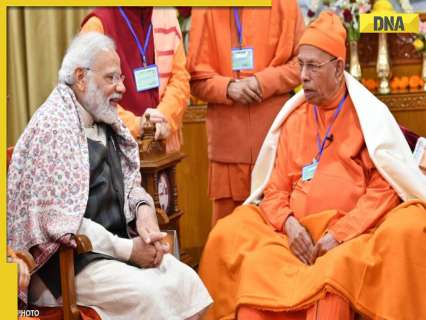
The Chief of Ramakrishna Math and Ramakrishna Mission, Swami Smaranananda Maharaj, died at 95 due to age-related ailments.
Republicans blast departing GOP lawmakers as razor-thin majority fuels fears of Dem takeover
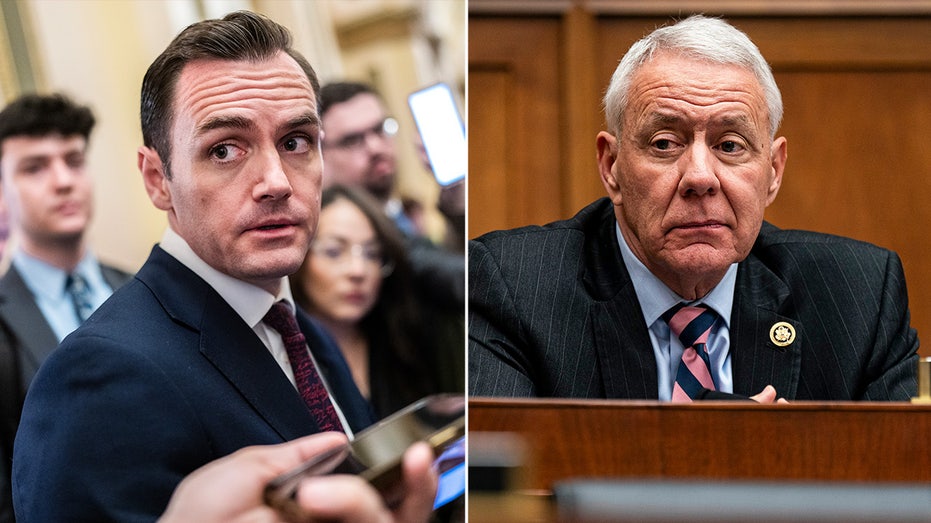
The early departures of several key Republicans have reignited tensions within the House GOP, as the lawmakers grapple with the prospect of a historically slim one-vote majority. “There’s no excuse for this,” Rep. Ralph Norman, R-S.C., told Fox News Digital. “The country’s at stake. To put the Democrats in control of what might happen is inexcusable.” Meanwhile, another GOP lawmaker said they understood people leaving, lamenting the state of “civic discourse” and suggesting more Republicans could soon be out the door. What’s in jeopardy is the thin line between Republicans losing the majority — whether by intentional exits or unintended incidents — to Democrats. GOING, GOING, GONE: COULD THE REPUBLICANS’ SLIM HOUSE MAJORITY SLIP AWAY BEFORE NOVEMBER? Back in January, Republicans had started the 118th Congress with just a single-digit majority. Multiple early departures since then, along with the expulsion of Rep. George Santos, R-N.Y., has slimmed that down dramatically. Rep. Mike Gallagher, R-Wis., shocked colleagues on Friday when he announced he’s stepping down on April 19, weeks after Rep. Ken Buck, R-Colo., also revealed he’d be stepping down early. Both announced earlier that they would not be seeking re-election. Gallagher and Buck were hammered by their conservative colleagues, with Gallagher in particular getting attacked because his planned departure date would come after Wisconsin’s deadline to hold a special election — meaning the seat would be vacant through 2024. GOP LAWMAKER RIPS TRUMP FOR WADING INTO HOUSE REPUBLICAN PRIMARY: ‘UNHELPFUL AND UNWARRANTED’ “If he’s going to resign, then do it. Let the people of Wisconsin pick a replacement. That would be the right thing to do, to me,” Norman said, questioning whether the decision was “a little strategic.” Rep. Marjorie Taylor Greene, R-Ga., went even further, telling “Sunday Morning Futures” that Speaker Mike Johnson, R-La., should expel Gallagher earlier so that a special election could take place. “Any strong Republican speaker of the House would expel a member for leaving our razor-thin majority in such a delicate, delicate state,” Greene said on Fox News Channel. His departure will likely leave a one-vote majority until June, when a special election for ex-Rep. Bill Johnson’s safe red Ohio seat will likely expand the GOP majority. Johnson left earlier this year to take over as president of Youngstown State University. Norman pointed out the precarious position the House GOP now finds itself in: “What if somebody has a heart attack? Or what if a tragedy strikes any number of us?” CONGRESSIONAL DIVERSITY AND INCLUSION OFFICE SHUT DOWN BY $1.2T GOVERNMENT FUNDING DEAL But a GOP lawmaker granted anonymity to speak more freely suggested it was those same hardline conservatives who have been fueling dysfunction within the House — such as holding up House floor votes and deposing ex-Speaker Kevin McCarthy, R-Calif., who also left Congress early afterward — that are partly responsible for pushing people out the door. “There aren’t that many blaming [lawmakers leaving early], because I think everybody understands it. I’ve heard dozens of members talk about leaving, walking away from it all,” the source said. “I think it should be a cautionary tale for all of us about our political environment. This is not just the House — we have millions of Americans who are disgusted by the toxicity and dysfunction in the system, and they’re checking out, too. And if we don’t fix the underlying problem with our civic discourse, we’re just going to get more of them — members of Congress through the citizenry, checking out,” they added. The GOP lawmaker called Buck and Gallagher “hard-working” and “principled.” Another conservative, Rep. Anna Paulina Luna, R-Fla., predicted further “gridlock” in the wake of Gallagher and Buck’s departures in a weekend interview with Fox News Live. “When you are seeing people intentionally leave in order to prevent primaries from happening so those seats can be filled, I just think that they’re doing the American people disservice,” Luna said. “You are really only screwing over the Republican Party — the American people.”

